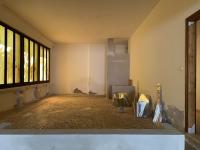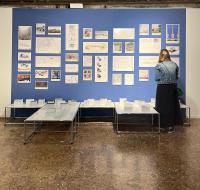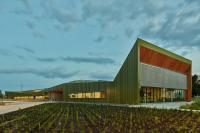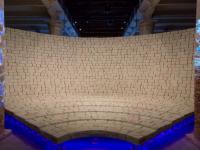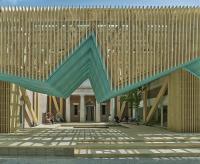Rock Cut Architecture: Amarnath Caves
Amarnath, India
One of the most pious and perilous of Hindu pilgrimages, the ‘Amarnath ji yatra’ is situated at a height of 3888 m, accessible only during the months of July-August for a period of roughly 45 days. The destination of the pilgrimage consists of a cave with a natural formation of an ice stalagmite in the form of a Shiva lingam.
The brief was to re-design the pilgrimage by way of developing residential accommodation for the pilgrims and allied infrastructure facilities. The location of the site is in an avalanche-prone zone and the weather permits a very small window of only about 3 months each year is suitable for building activity. The start point was the formulation of a masterplan wherein the yatra was reorganized to demarcate areas for specific activities and more importantly to provide a sense of order to an otherwise chaotic arrangement. The entire masterplanning is done in a manner to ensure and permit all avalanches to be diverted away from the semi-permanent facilities and be allowed to flow into the river with minimal damage
to the infrastructure during the period when it is not being used.
Given the terrain of the region, the holy cave can only be accessed either on foot or on pony back. This made the task of being able to construct any accommodation close to the cave virtually impossible given logistical regions of being able to carry material and equipment. Another hurdle was by way of the extreme climatic conditions and topography of the region and its bearing on traditional methods of building. Concrete was un-feasible as a choice of material as foundations would be impossible to plant in glacier territory and Steel would go brittle at these low temperatures. Due to the purity of landscape, it was imperative to keep minimal intervention into the topography of the region. Drawing from the elements and re-interpreting them in light of modern day technology, there has been an attempt to achieve a fine balance between nature and man and In the process, to achieve an environment which is not just more comfortable for a pilgrim who has traversed hundreds of miles but also to be able to heighten the spiritual experience.







